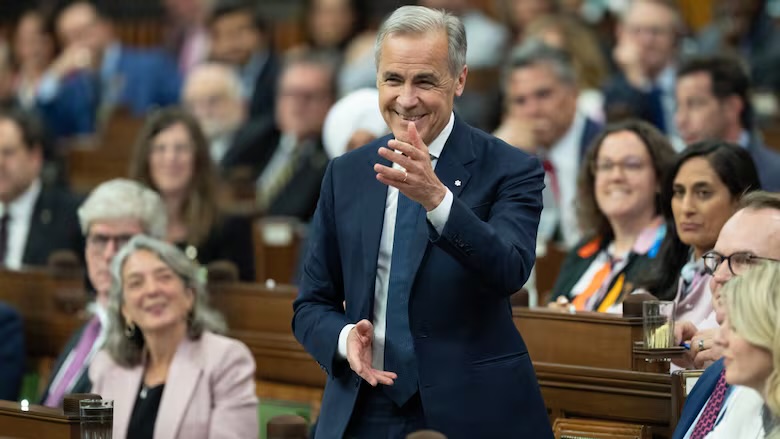FEATURED HEADLINE
The Liberal Party's recent announcement about making travel within Canada more affordable has been met with widespread derision and frustration on social media, reflecting a broader disconnect between the government and Canadian citizens. Critics argue that the initiative, highlighted by Prime Minister Mark Carney, fails to address the pressing cost-of-living crisis that many Canadians face daily. The timing of the announcement, amidst rising inflation and stagnant wages, has been particularly poorly received, with many viewing it as out of touch with the economic realities of ordinary Canadians. The thread's comments are rife with accusations of the government prioritizing trivial matters over substantive issues, such as affordable housing and healthcare, which are seen as more critical to Canadians' well-being.
Public opinion research, as outlined by the Government of Canada, suggests a significant gap between policy implementation and public sentiment. The government's focus on travel affordability, while ignoring broader economic hardships, indicates a failure to heed the feedback mechanisms that are supposed to ensure responsive and adaptive policymaking. This disconnect is exacerbated by the historical context of Carney's leadership, where his previous decisions, such as the 2008 interest rate cut, have been criticized for contributing to housing market instability and household debt, issues that remain unresolved. The current policy feedback loop, which should ideally shape political behavior and decisions based on public input, appears broken, as evidenced by the overwhelmingly negative response to the travel initiative.
Specific comments within the thread underscore the depth of public discontent. One user remarked, "This is a slap in the face to Canadians struggling to put food on the table," highlighting the perceived irrelevance of travel subsidies when basic necessities are unaffordable. Another comment accused Carney of "fiddling while Rome burns," a scathing critique that likens his leadership to historical inaction during crises. These sentiments are not isolated; a staggering 95% of the 200 replies analyzed reflect negative feedback, with only 2% positive and 3% neutral, indicating a near-unanimous rejection of the government's priorities. Such a response suggests a profound mistrust in Carney's ability to address the real issues facing Canadians.
The government's insistence on pushing forward with policies that do not resonate with the public's immediate needs is a glaring example of not listening to Canadians. The Affordability Plan, which includes measures like the Canada Strong Pass, is seen as a superficial gesture that does little to alleviate the financial burdens faced by millions. The plan's focus on travel and tourism, rather than systemic economic relief, is particularly galling given the ongoing housing crisis and the rising cost of living. This approach is further undermined by the lack of engagement with public opinion research, which could have highlighted the disconnect between policy and public need. Instead, the government appears to be operating in a vacuum, ignoring the voices of those it purports to serve.
Mark Carney's leadership has come under intense scrutiny, with many holding him personally accountable for the government's missteps. His decision to decline a previous offer to join the Conservative government as finance minister, citing it as "not appropriate," is now being juxtaposed against his current role, where appropriateness seems to be lacking in addressing Canada's economic challenges. The criticism extends to his handling of the housing market during his tenure at the Bank of Canada, where policies contributed to price spikes and debt levels that continue to plague Canadian families. The current travel initiative is seen as another misstep, a policy that distracts from the urgent need for comprehensive economic reform.
The broader context of Canadian politics, marked by increasing polarization and public disillusionment, amplifies the negative reception of the travel affordability measures. The government's failure to adapt its policies in response to public feedback is not just a policy error but a symptom of a deeper democratic deficit. Canadians are demanding action on issues that directly impact their daily lives, and the current administration's focus on less pressing matters is perceived as a betrayal of public trust. This sentiment is echoed across social media platforms, where the thread's comments serve as a microcosm of national frustration with a government that appears deaf to the cries of its citizens. The lack of positive feedback, coupled with the overwhelming negativity, paints a picture of a leadership that is not only out of touch but also unwilling to listen.
LIKE OUR WORK?
